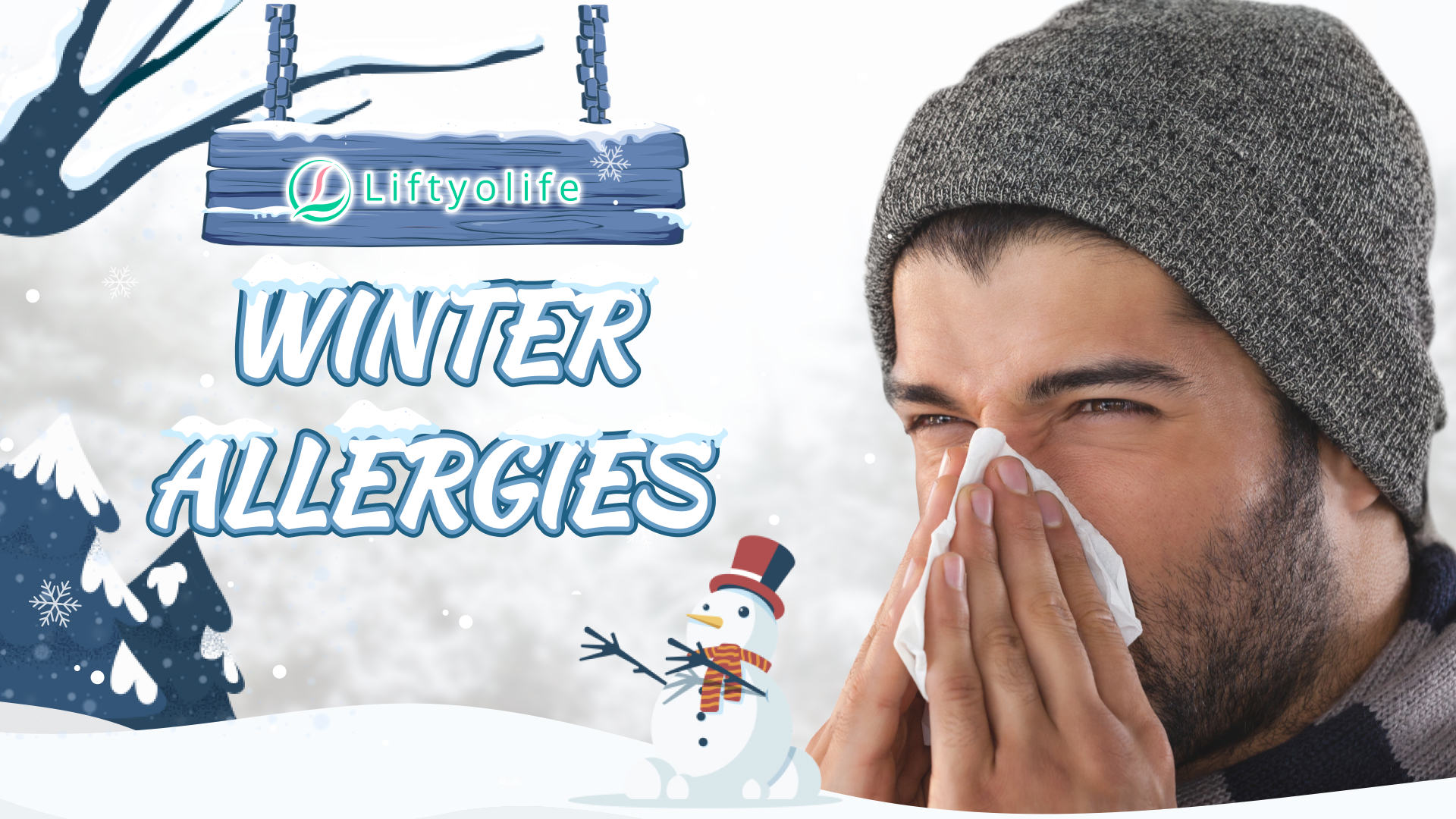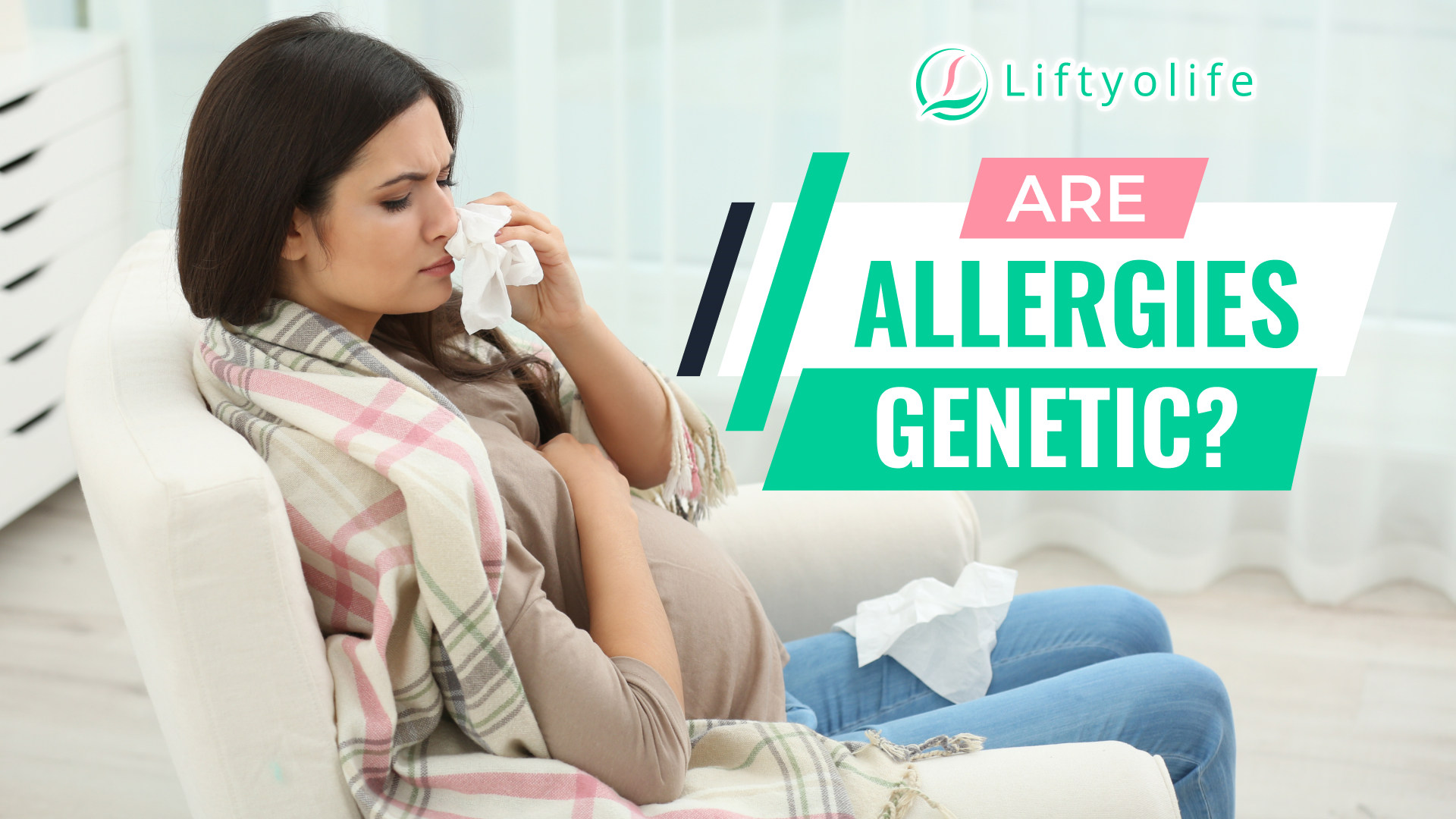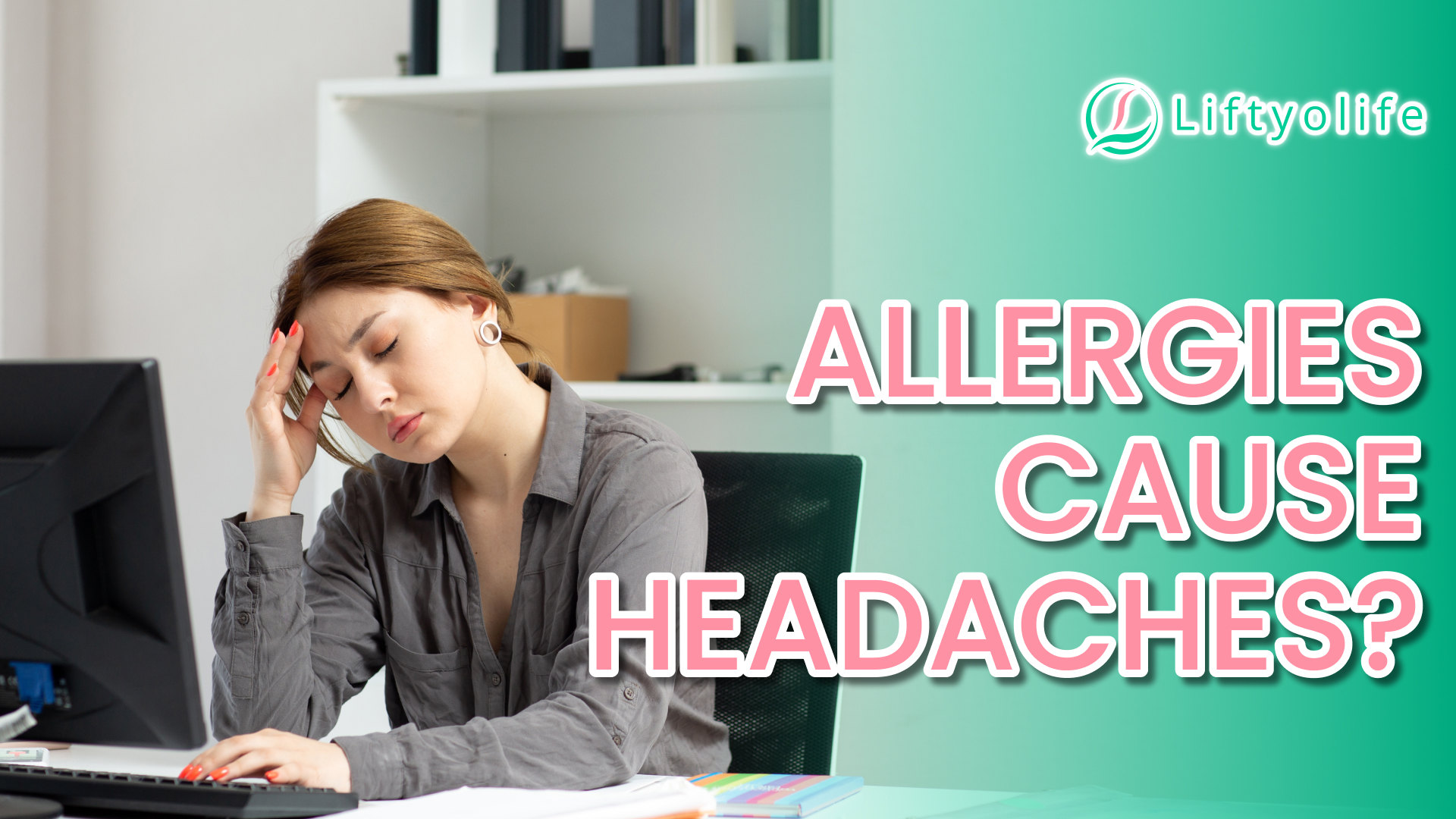Can Allergies Cause Fever?
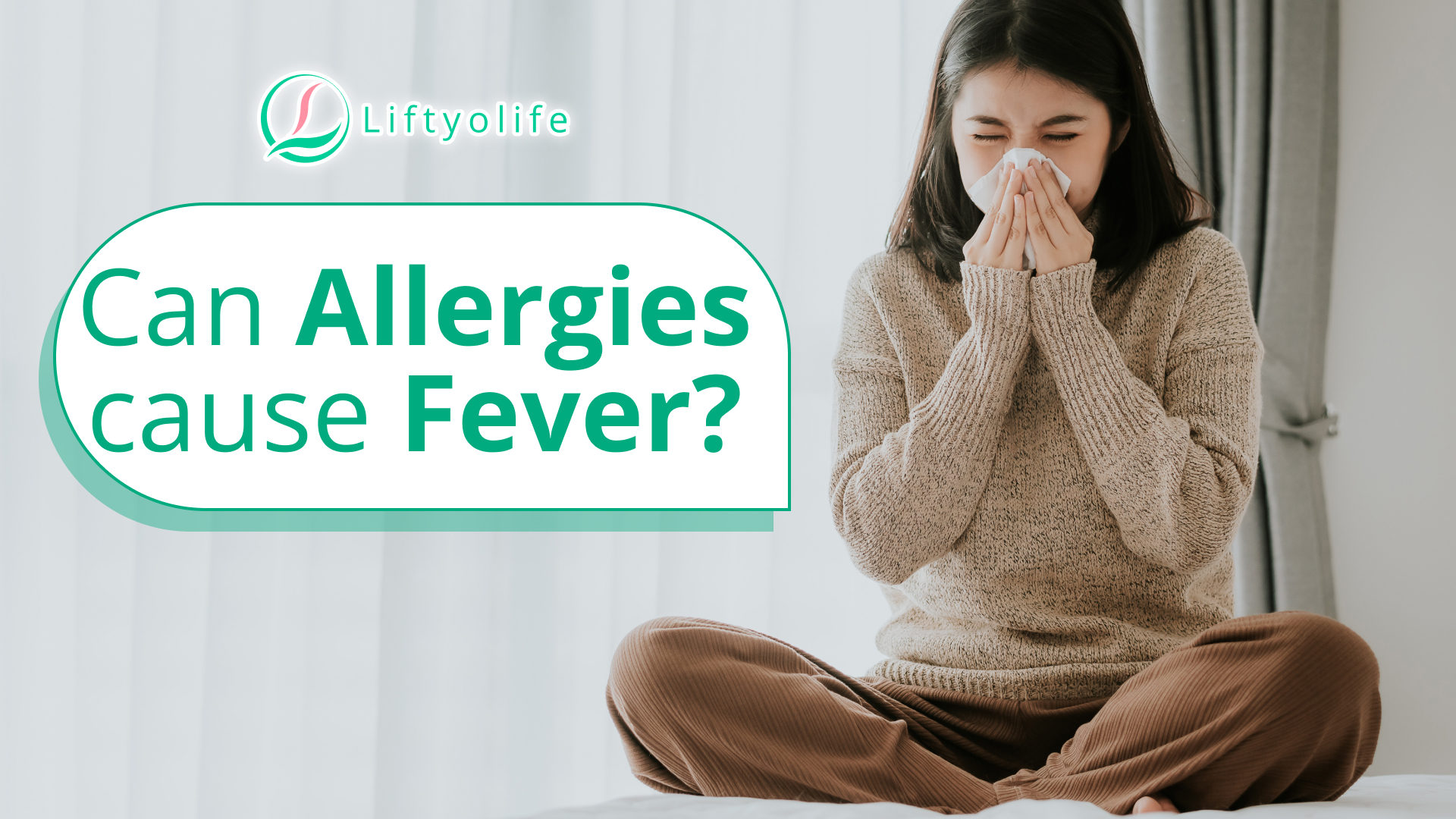
Can allergies cause fever? Have you ever had allergies before? If so, do you have a fever as well? The same thing happened to your loved ones, and you assumed that allergies cause fever. But, what exactly is the cause of these symptoms? Let’s go ahead with Liftyolife (liftyolife.com) to reveal right now.
1. Common allergy symptoms
Common side effects include a stuffy nose, itchy eyes, and a rash on the skin. Severe allergic reactions necessitate prompt medical attention. Moreover, many people who have allergies have asthma as well. Allergic reactions may trigger asthma attacks, which cause swelling and tightening of your airways, making it difficult to breathe.
The following symptoms can identify allergies and allergic reactions (1):
- All asthma symptoms include shortness of breath, chest tightness, cough, or wheezing.
- Eyes that are itchy and watery
- Itchy, swollen, or runny nose
- Hives or a scaly rash on the skin
- Under and around the eyes, there are dark circles.
- Recurring headaches
- Diarrhea or abdominal cramps
- Anaphylaxis (a severe allergic reaction) can be fatal. Swelling, tingling in the mouth, and a red, itchy rash is among the symptoms: lightheadedness, shortness of breath, severe sneezing, stomach cramps, and blood pressure loss. If you have any of those symptoms, you should see a doctor or go to the emergency room right away.
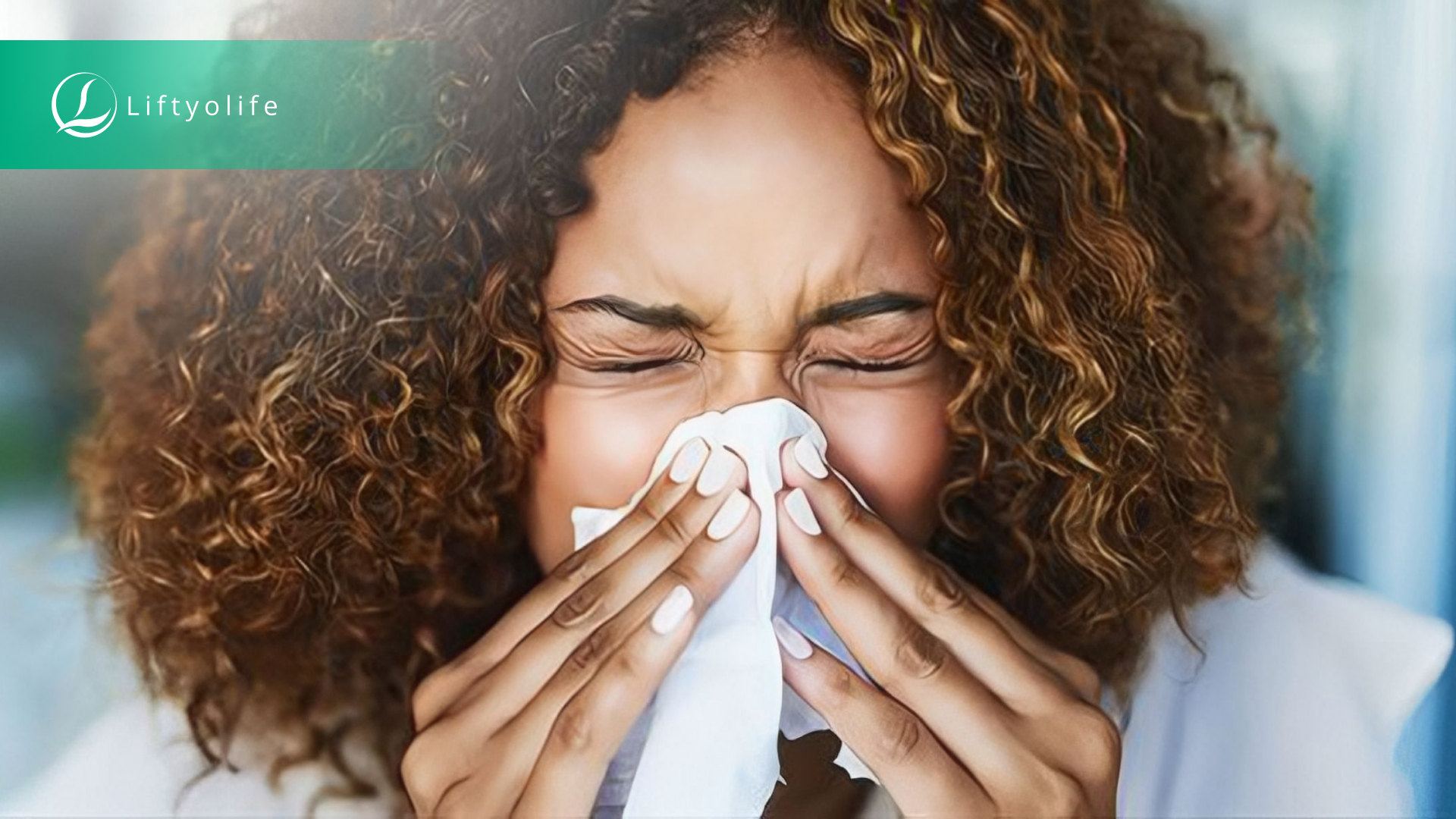
Common allergy symptoms
2. Diagnosing an allergy
If you suspect your symptoms result from an allergy, you should see your primary care physician as soon as possible for treatment and diagnosis.
An allergist can perform allergy tests to determine the cause of your reaction and develop a treatment plan to alleviate or prevent your symptoms.
- Physical exam is required to diagnose an allergy. A detailed personal medical history will be requested of you. A medical record can assist your allergist in determining a link between your symptoms and your exposure to the allergens that may be causing them.
- Keeping a record of when you have flare-ups can greatly assist your allergist in determining a cause. For example, knowing when your symptoms first appeared and what seasonal changes, if any, were co-occurring can provide essential clues to your doctor.
- A skin prick test can also help diagnose your allergy. This test injects a tiny amount of an allergen just under the skin. Your skin’s reaction reveals whether or not you are allergic to that particular allergen. A blood test can also be used to determine the source of an allergy.
3. Can allergies cause fever?
Allergies do not cause fevers, but they can set off a sinus infection, which can result in a fever. In other words, people rarely get fevers as a result of allergies. It depends on the allergen and the symptoms that arise from your immune system’s reaction; you may develop a fever. Fever is typically caused by infection.
Normal body temperature ranges from approximately 97 degrees Fahrenheit (36.1 degrees Celsius) to 99 degrees Fahrenheit (37.2 degrees Celsius), with a 1 degree higher or lower limit. When your temperature rises to 100.4 degrees Fahrenheit or higher (2), it’s essential to think beyond allergies because you could be suffering from a contagious illness that necessitates a sick day.
Fever is seen in people who have nasal congestion due to an allergen. Congestion traps microorganisms such as bacteria in your nose, putting you at risk for sinusitis. Sinus inflammation, also known as sinusitis, is accompanied by fever. As a result, such fevers can last for a few days and necessitate antimicrobial treatment. As with other infections that cause fever, treating sinusitis will help relieve your fever in this case. Fever is a rare symptom of an allergic reaction in people whose allergy does not cause nasal congestion.

Can allergies cause fever?
4. Treatment for Allergies
You can use the following simple actions to alleviate allergy symptoms:
- Rest.
- Keep hydrated.
- Take pain relievers such as acetaminophen or ibuprofen.
- Nasal sprays are used to relieve congestion.
- Avoid alcoholic beverages and caffeine.
- If you have sinusitis, you can apply a warm compress to your forehead and cheeks if you are experiencing painful pressure.
Treatment for allergies is dependent on the allergen, but other options include:
- Immunotherapy (commonly referred to as allergy shots). Sneezing, runny nose, and itchy/watery eyes can all be treated with antihistamines.
- Nasal corticosteroids are used to treat nasal inflammation (3).
Moreover, some therapies for treatment currently used today are (4):
- Allergen sensitization is essential in developing any allergic disease in atopic individuals. As a result, avoiding allergens before or after sensitization should be advantageous as primary or secondary prophylaxis.
- Inhaled SABAs (Short-acting beta-agonists) like salbutamol and terbutaline are currently the most effective bronchodilators for the rapid relief of asthma symptoms. Formoterol and salmeterol, two inhaled LABAs (Long-acting beta-agonists), induce bronchodilation for at least 12 hours (5) and are used as supplemental therapy for asthma that is not controlled by inhaled corticosteroids.
- Allergen-specific immunotherapy (SIT) is an immune-modifying therapy used to treat allergic rhinitis, venom hypersensitivity, some drug allergies, and mild bronchial asthma.
- Subcutaneous immunotherapy (SCIT) entails the regular subcutaneous injection of allergen extracts or recombinant allergens using incremental regimes, with tolerance induction taking anywhere from a few days to several months depending on the regime used.

Treatment for Allergies
5. When to see a doctor?
Set an appointment with your doctor right away if you have flu symptoms that last more than 10 days or if over-the-counter medications do not relieve your symptoms.
Consult a doctor if the fever is the result of:
- Uncontrollable shivering
- High body temperature with no sweat
- Symptoms are getting worse.
- Muscle spasms and skin rash
- Nausea
- Drowsiness or confusion
- If you or you have a fever of more than 40 degrees Celsius (104 degrees Fahrenheit), you should seek medical attention.
Moreover, seek immediate medical help if you experience an extreme allergic reaction like anaphylaxis since it can be fatal. Symptoms of anaphylaxis can include:
- Difficulty breathing
- Swelling of the throat or tongue
- Vomiting
- Diarrhea
- Loss of consciousness
- Severe drop in blood pressure
- Hives
Call 911 or your local emergency number if you are experiencing a severe allergic reaction (anaphylaxis) or seek emergency medical attention. Use it right away if you have an epinephrine auto-injector (Auvi-Q, EpiPen, or similar).
Even if your symptoms improve after an epinephrine injection, you should go to the emergency room to ensure they don’t return when the injection’s effects wear off.
Have you discovered the answer to the following question: Can allergies cause fever? Liftyolife (liftyolife.com) thinks so. Allergies are common, but they are treatable. You won’t have it under control if you try home remedies and take the proper medications. However, it is recommended that you ask your doctor’s advice for more effective treatment options. If the symptoms persist, seek immediate medical attention.
==> Read More:

